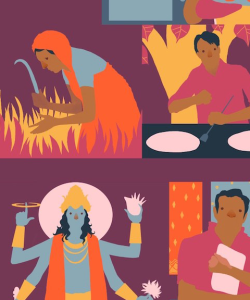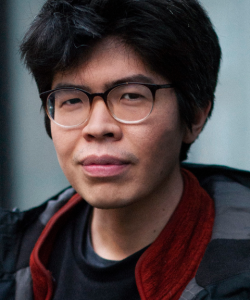Craft Capsule: In Praise of Italics

The author of Martha Moody writes about the intimacy and queerness of italics.
Jump to navigation Skip to content
In our weekly series of craft essays, some of the best and brightest minds in contemporary literature explore their craft in compact form, articulating their thoughts about creative obsessions and curiosities in a working notebook of lessons about the art of writing.

The author of Martha Moody writes about the intimacy and queerness of italics.

The author of Martha Moody recalls the challenge of finding language to describe her body.

The author of I Know You Know Who I Am writes about stashing his surplus sentences and character sketches in an electronic “junk drawer.”

The author of I Know You Know Who I Am recalls his first attempt at writing a braided narrative.

The author of I Know You Know Who I Am praises the unique resonance of short short stories.

The author of I Know You Know Who I Am seeks to approach his characters without judgment.

The author of Anodyne takes a poetic approach to prose writing.

The author of Anodyne shares her methodology for determining the order of poems in a collection.

The author of Anodyne prioritizes joy in her poetics.

The author of Anodyne envisions a new writing practice inspired by the natural world.

The author of Thin Places urges writers to consider the reader.

The author of Thin Places recalls failed attempt after failed attempt to maintain a strict writing schedule.

The author of Thin Places considers how to write an essay (or essay collection) that follows the arc of epiphany.

The author of Thin Places celebrates hot-blooded writing.

The author of When I Grow Up I Want to Be a List of Further Possibilities embraces and develops a queer Asian American poetics.

The author of When I Grow Up I Want to Be a List of Further Possibilities explores personal and collective nightmares.

The author of When I Grow Up I Want to Be a List of Further Possibilities traces his origins as a poet.

The author of Each of Us Killers reflects on how music has informed her fiction.

The author of Each of Us Killers shares strategies for reinventing folktales and myths for contemporary times.

The author of Each of Us Killers shares a manifesto for literary criticism.

The author of Each of Us Killers explains why reading and writing are forms of translation.

The author of RENDANG consults poems by Monica Youn, Meiling Jin, and Mei-mei Berssenbrugge to analyze how racial markers function in poetry.

The author of RENDANG reflects on the value of uncertainty in his reading and writing lives.

The author of RENDANG considers the complex relationships embedded in the act of looking.

The author of RENDANG blurs the boundary between narrative and lyric.